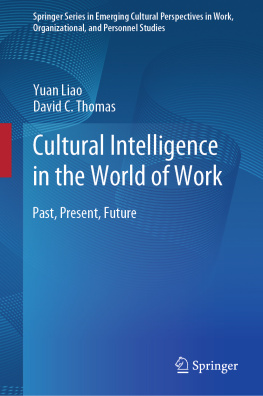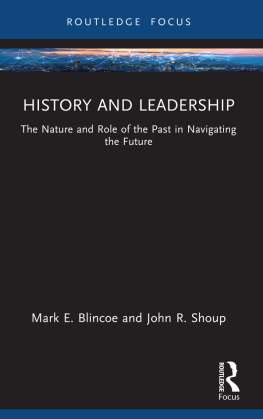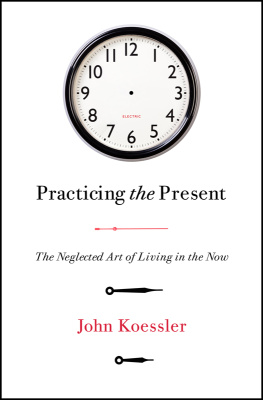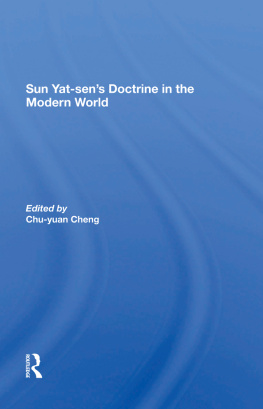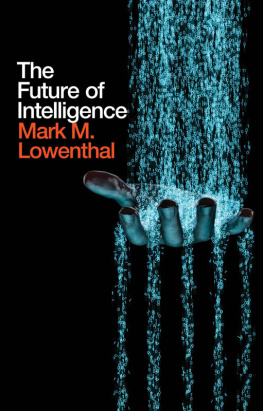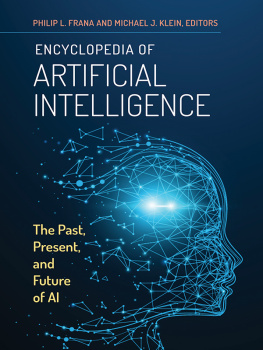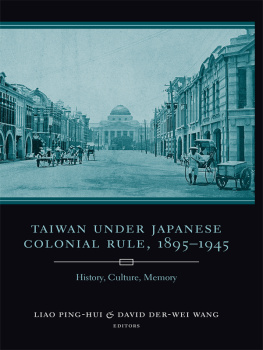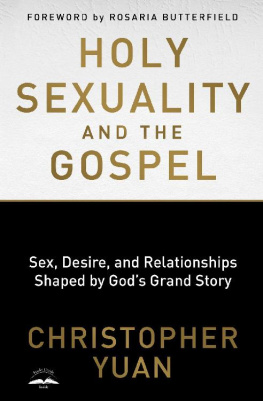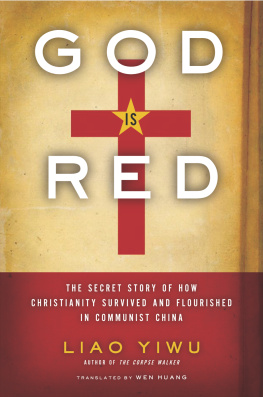Yuan Liao - Cultural Intelligence in the World of Work: Past, Present, Future
Here you can read online Yuan Liao - Cultural Intelligence in the World of Work: Past, Present, Future full text of the book (entire story) in english for free. Download pdf and epub, get meaning, cover and reviews about this ebook. year: 2020, publisher: Springer Nature, genre: Romance novel. Description of the work, (preface) as well as reviews are available. Best literature library LitArk.com created for fans of good reading and offers a wide selection of genres:
Romance novel
Science fiction
Adventure
Detective
Science
History
Home and family
Prose
Art
Politics
Computer
Non-fiction
Religion
Business
Children
Humor
Choose a favorite category and find really read worthwhile books. Enjoy immersion in the world of imagination, feel the emotions of the characters or learn something new for yourself, make an fascinating discovery.
- Book:Cultural Intelligence in the World of Work: Past, Present, Future
- Author:
- Publisher:Springer Nature
- Genre:
- Year:2020
- Rating:4 / 5
- Favourites:Add to favourites
- Your mark:
- 80
- 1
- 2
- 3
- 4
- 5
Cultural Intelligence in the World of Work: Past, Present, Future: summary, description and annotation
We offer to read an annotation, description, summary or preface (depends on what the author of the book "Cultural Intelligence in the World of Work: Past, Present, Future" wrote himself). If you haven't found the necessary information about the book — write in the comments, we will try to find it.
Yuan Liao: author's other books
Who wrote Cultural Intelligence in the World of Work: Past, Present, Future? Find out the surname, the name of the author of the book and a list of all author's works by series.
Cultural Intelligence in the World of Work: Past, Present, Future — read online for free the complete book (whole text) full work
Below is the text of the book, divided by pages. System saving the place of the last page read, allows you to conveniently read the book "Cultural Intelligence in the World of Work: Past, Present, Future" online for free, without having to search again every time where you left off. Put a bookmark, and you can go to the page where you finished reading at any time.
Font size:
Interval:
Bookmark:
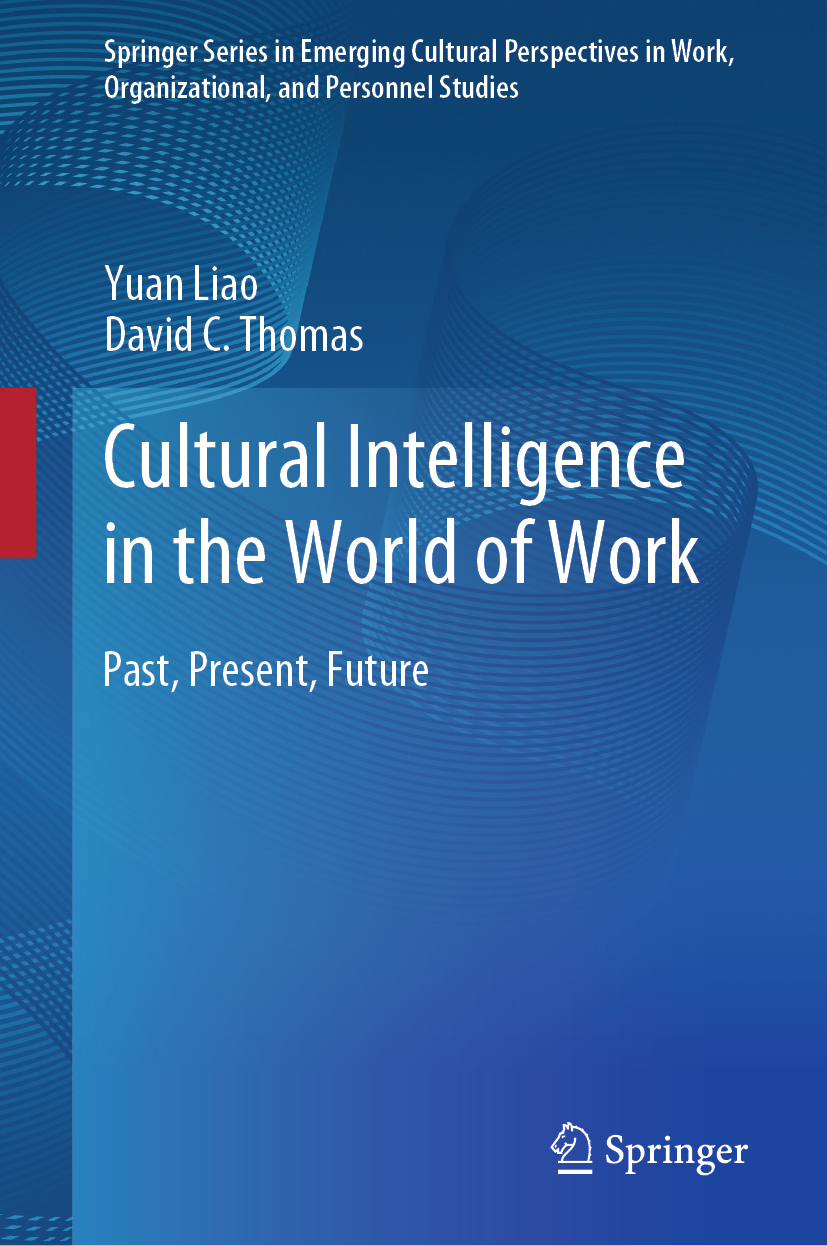
More information about this series at http://www.springer.com/series/16418

This Springer imprint is published by the registered company Springer Nature Switzerland AG
The registered company address is: Gewerbestrasse 11, 6330 Cham, Switzerland
The authors thank the editors, Sharon Glazer and Catherine Kwantes, two anonymous reviewers, and Mark Peterson for their constructive feedback on this monograph.
Early research on cultural competence laid the groundwork for the development of the cultural intelligence construct. First, the early sojourner research began with a search for an overseas type, but ultimately shifted the focus to the identification of a dynamic set of skills and abilities. Next, models of cross-cultural effectiveness provided the identification of important elements that have influenced the conceptualization of cultural intelligence. Components models identified numerous factors potentially related to intercultural effectiveness, including some that anticipated the higher order cognitive skills associated with cultural intelligence. Coping and adjustment models presented cross-cultural skills in terms of broad skills dimensions, while also considering the effect of contextual factors. Developmental and learning models highlighted the importance of intercultural experience in the development of intercultural competence, which is reflected in the development of cultural intelligence. Despite the production of numerous instruments designed to tap into the construct of cross-cultural competence or related ideas, no truly satisfactory measure gained widespread acceptance. In this chapter, we review the theoretical development of cross-cultural competence and summarize seven of the most popular measures of this construct.
In todays organizations , we are reminded on a daily basis of the interconnected world in which we live. This globalization has many effects, but one of the most important is the requirement to interact with people from other cultures. People in organizations of all types are now presented with the opportunity to engage, on an unprecedented level, with culturally different others to solve problems, make decisions, sell products, develop new ideas, and indeed just survive the rigors of our daily working lives. Never before has competence in cross-cultural interactions been more important in organizational life.
Font size:
Interval:
Bookmark:
Similar books «Cultural Intelligence in the World of Work: Past, Present, Future»
Look at similar books to Cultural Intelligence in the World of Work: Past, Present, Future. We have selected literature similar in name and meaning in the hope of providing readers with more options to find new, interesting, not yet read works.
Discussion, reviews of the book Cultural Intelligence in the World of Work: Past, Present, Future and just readers' own opinions. Leave your comments, write what you think about the work, its meaning or the main characters. Specify what exactly you liked and what you didn't like, and why you think so.

